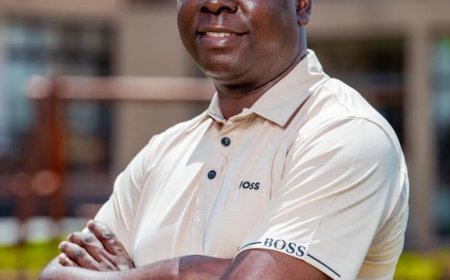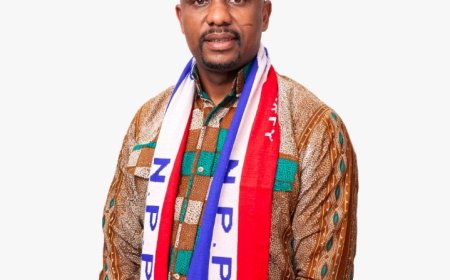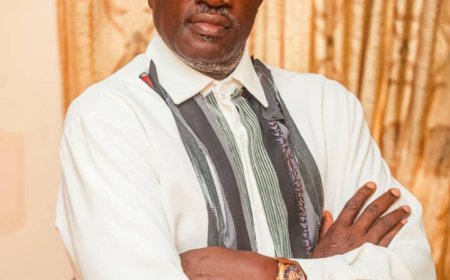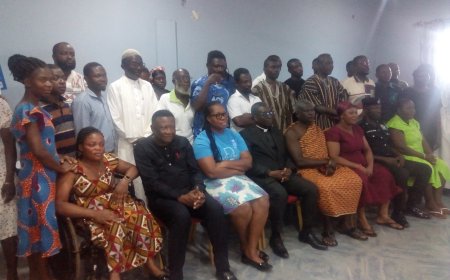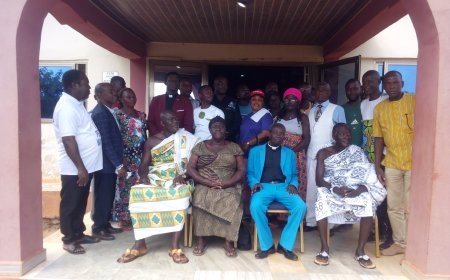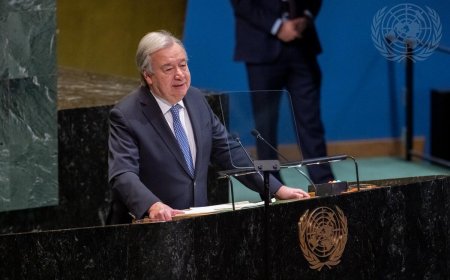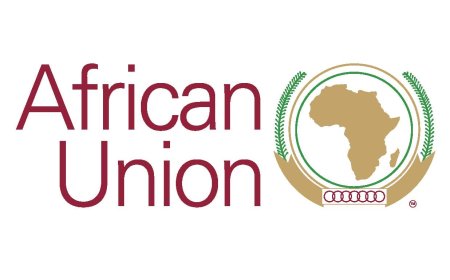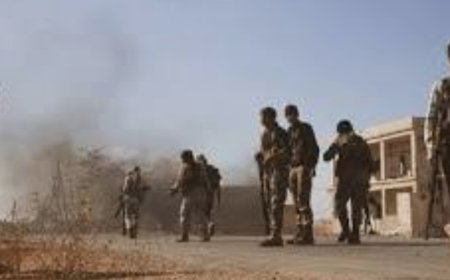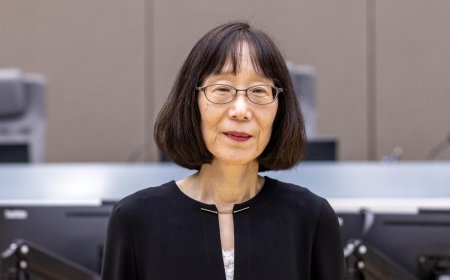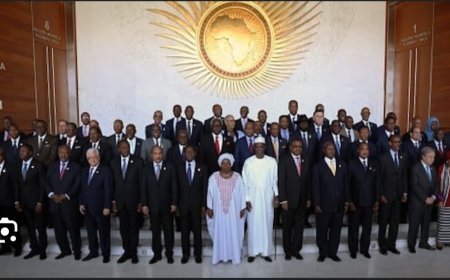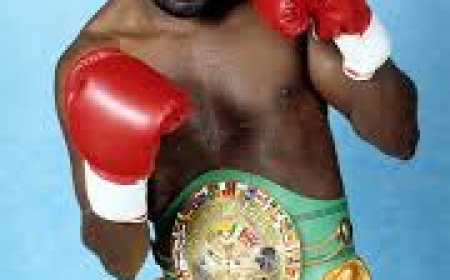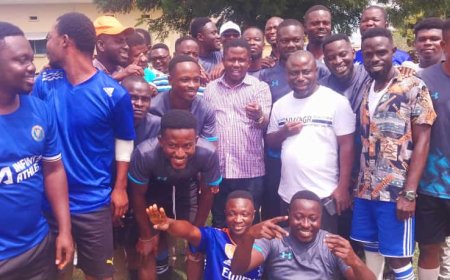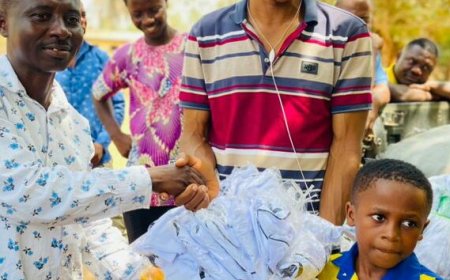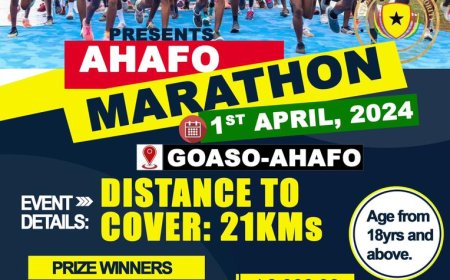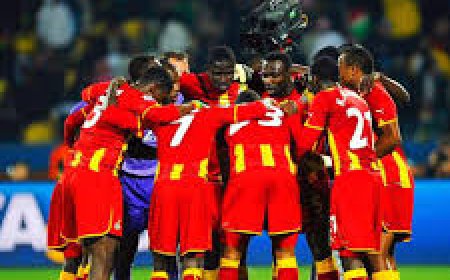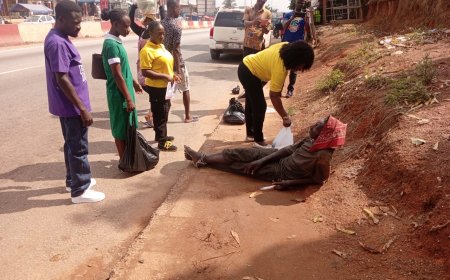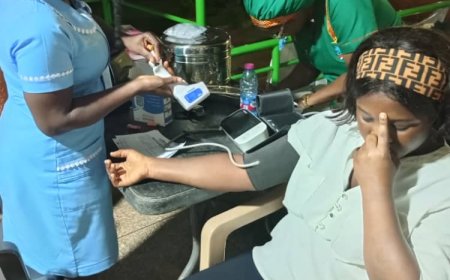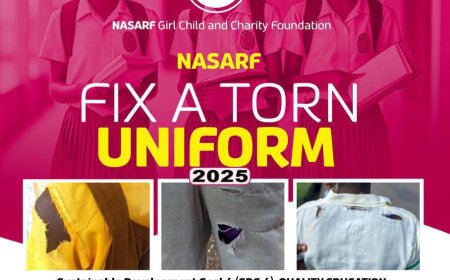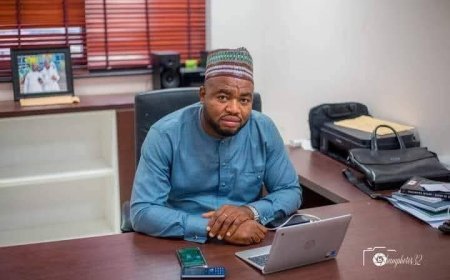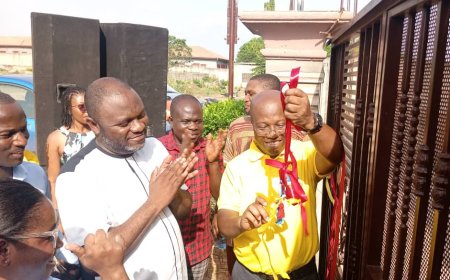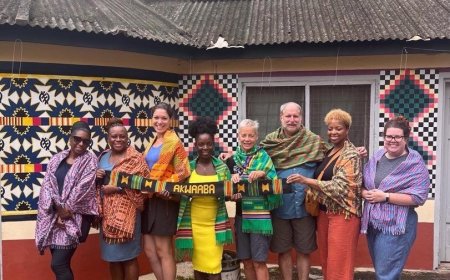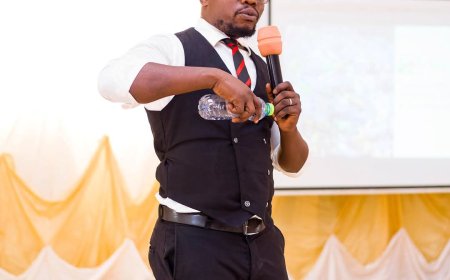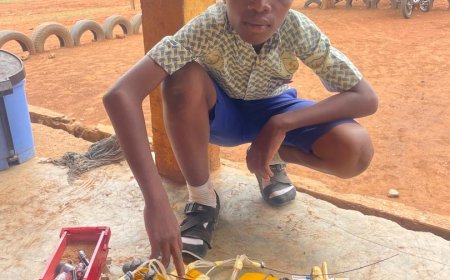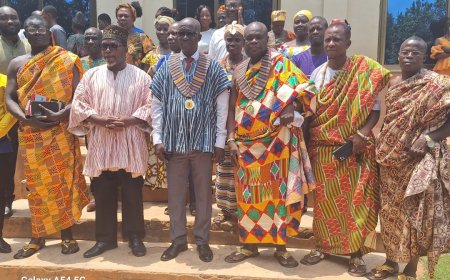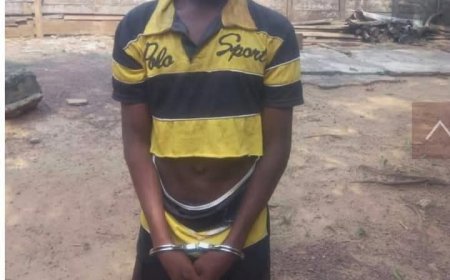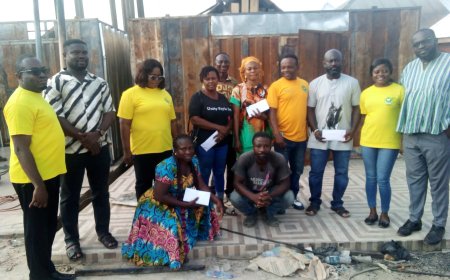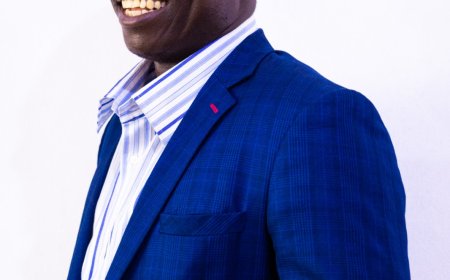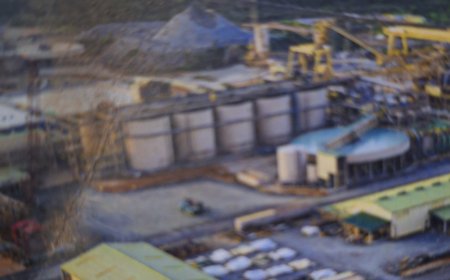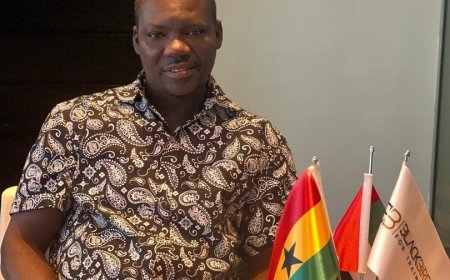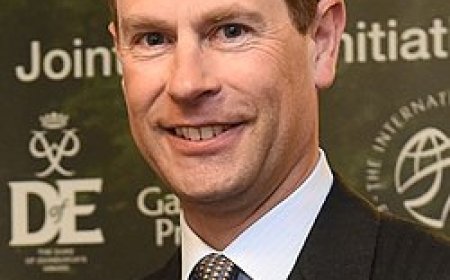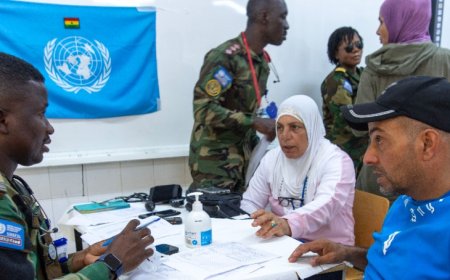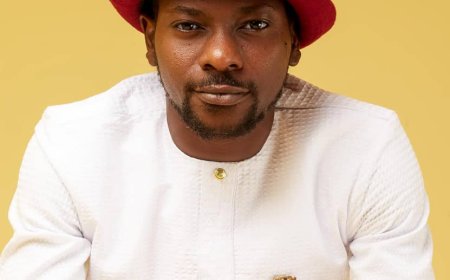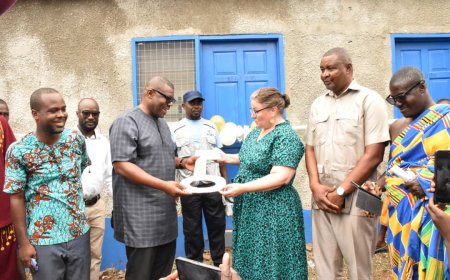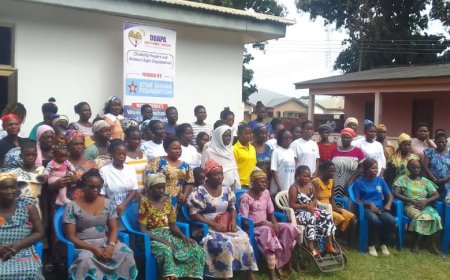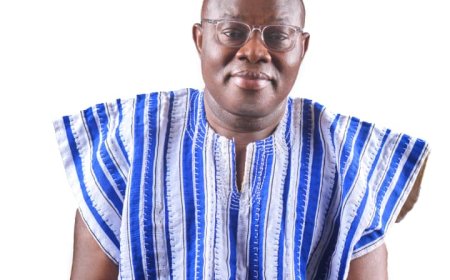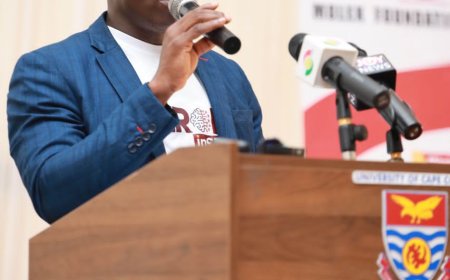BACK IN HISTORY : FELICIA ABBAN, THE FIRST FEMALE PROFESSIONAL PHOTOGRAPHER. SHE WAS ON THE PAYROLL OF KWAME NKRUMAH.
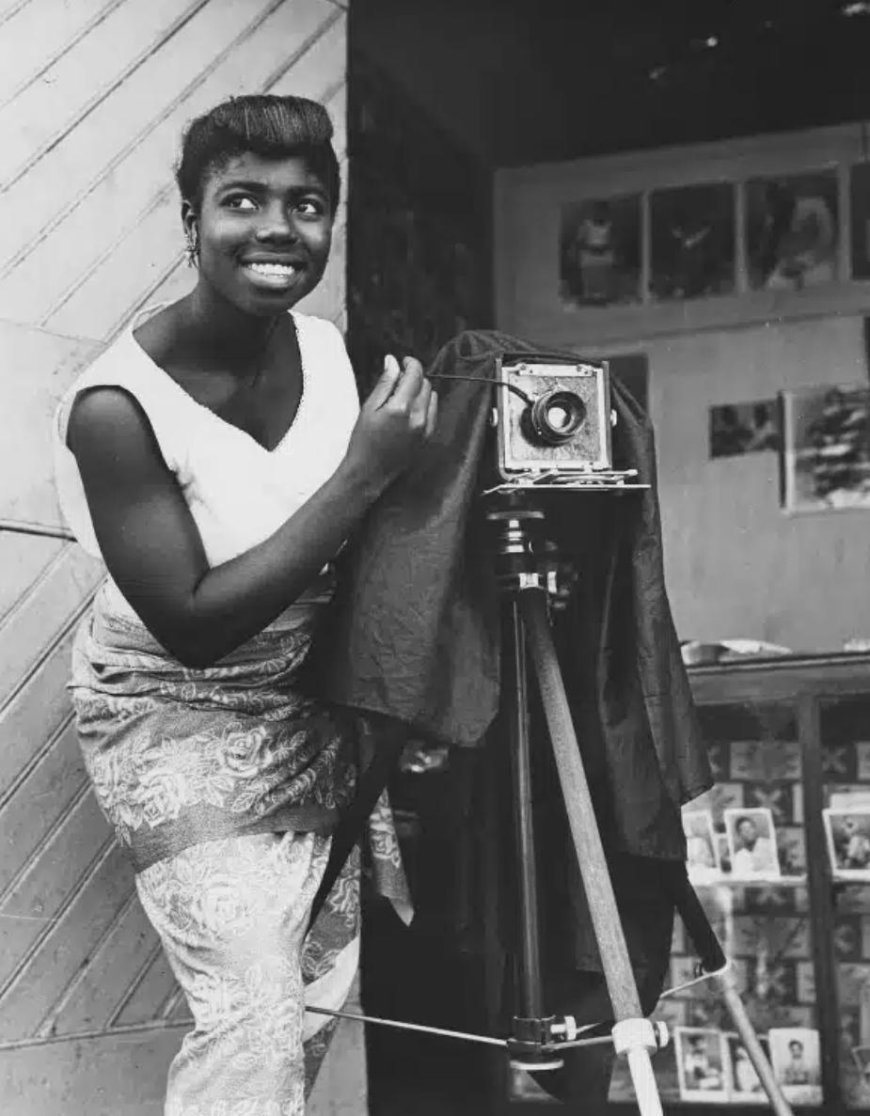
Felicia Abban (née Ansah) is Ghana's first female professional photographer.
She, however, went on to become one of the African continent’s most respected Photo Artists of her day – on the payroll of Kwame Nkrumah, the first President of Ghana, and a detailed analyst of her country’s transformation.
Felicia Abban was born in 1935 in the Western Region and grew up in a Sekondi - Takoradi. She was the eldest of six children and quickly followed her father, J.E. Ansah's footsteps in photography and became his apprentice at the age of 14.
Felicia Abban studied under him for the next four years working on her craft and at the age of 18, Felicia relocated from Takoradi to Accra, where she set up her own studio “Mrs. Felicia Abban’s Day and Night Quality Art Studio” in the center of Jamestown, Accra in 1955.
Felicia Abban’s studio was also close to other studios including J.K. Bruce Vanderpuije’s “Deo Gratias” and James Barnor’s “Ever Young Studio”. They contributed to the history of Ghanaian photographers during this period.
In Felicia Abban’s early career she also worked for the Guinea Press Limited, now known as "The Ghanaian Times".
Felicia Abban is widely known for her self - portraits, especially the ones she took before an event as a way to promote her business from the 1950s to 1970s.
Felicia Abban established her studio in Accra in 1955 and took on other women as apprentices. She was then recognized as one of Ghana's earliest instrumental female photographers projecting the contemporary African narrative through the lens.
During the early independence, her portraits also used clothing as the main expression of her identity and were used as “calling cards” around her own muses.
Her self - portraits resembled fashion magazine images with an added more contemporary context.
What is consistent throughout these diverse photographs is the way in which Felicia Abban used clothing to visibly articulate a feminine identity that played with the traditional and contemporary in an artful hybrid described as urbane and trans - Atlantic.
The first public display of her work was curated by Nana Ofori - Atta Ayim and staged at ANO's gallery in March 2017 and the gallery has plans of transforming her studio into a museum in her honour.
The museum, when completed, will help preserve her work, further serving as a hub to support upcoming artists.
Nana Ofori - Atta Ayim also curated Ghana Freedom, the first Ghanaian Pavilion at the Venice Biennale in 2019, which included Felicia Abban among the six artists chosen.
Felicia Abban's portraits and self -portraits rendered a moment in Ghanaian history through her own female gaze that captured not only their style but also attitude during its time.
Felicia Abban's work has also been showcased in the 12th edition of the 2019 Bamako Encounters. She retired from photography as a result of a worsening arthritis condition.
Felicia Abban was married to Robert Abban, the man who designed the fabric to commemorate Ghana's independence celebration in 1957, with Kwame Nkrumah's portrait featured on flowers with the Ghana map.
Mr Abban was the creative director of former Ghana Textiles and Manufacturing Company (GTMC).
Felicia Abban played a role in mentoring seminal filmmaker Kwaw Ansah , as well as the fashion designer Kofi Ansah both of whom are one of her siblings.
For publications and advertisements contact,
O
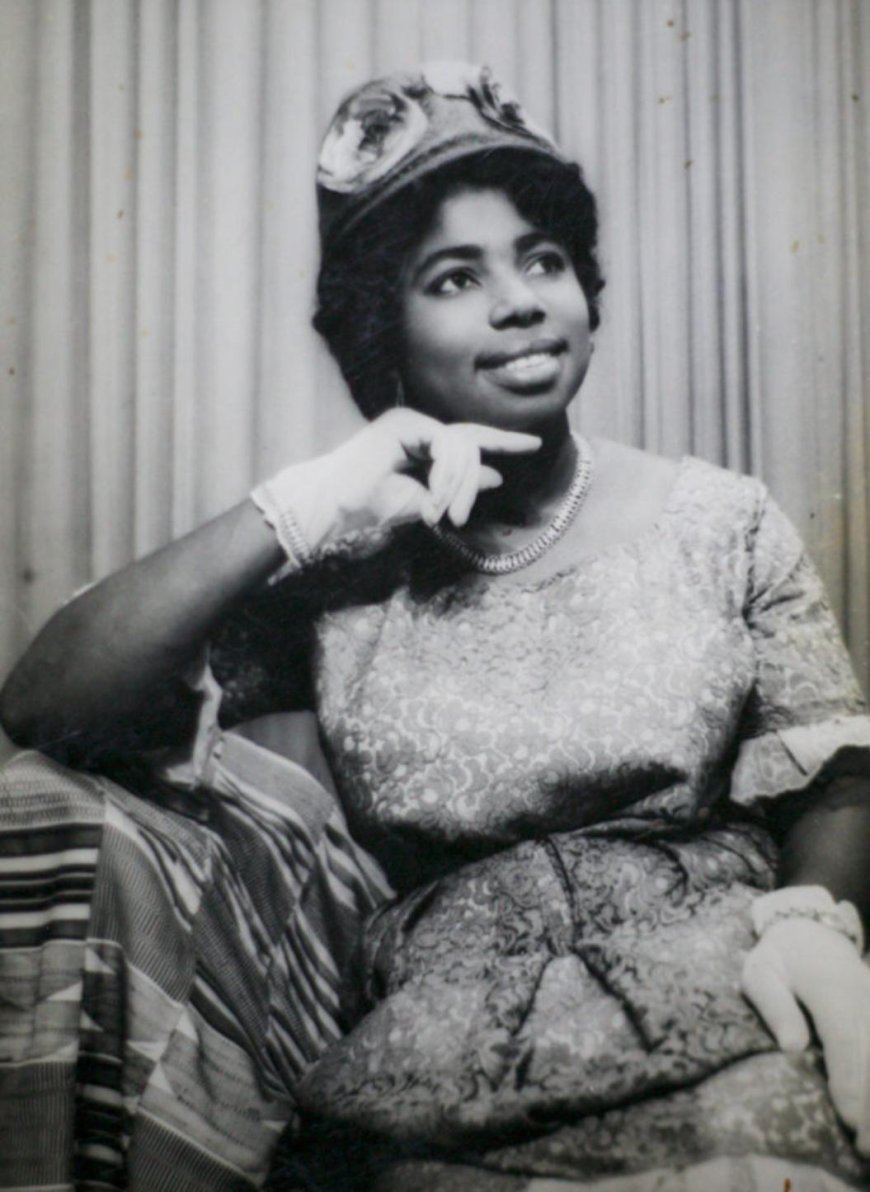
dopa2@gmail.com
WhatsApp - 0202373920
What's Your Reaction?







